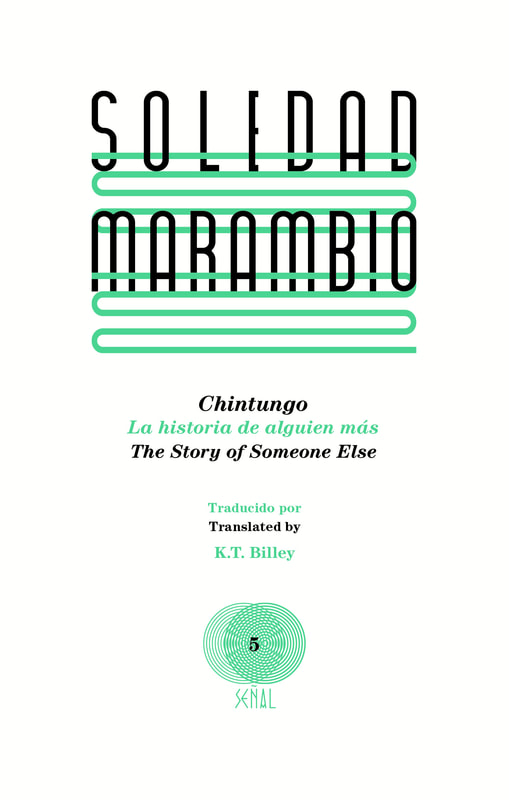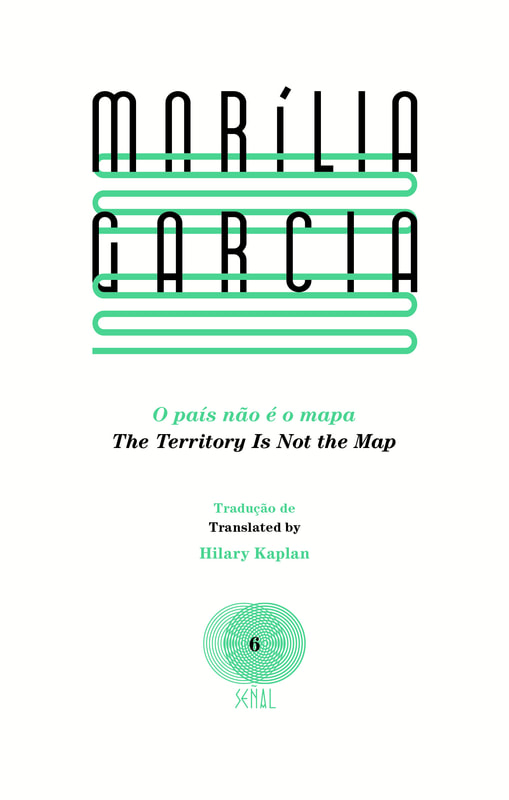|
Ugly Duckling’s Señal chapbook series continues in 2017 with two new titles. The fifth in the series is Chintungo: The Story of Someone Else, a fantastic exploration of the mythos of identity, the process of heroism and legend-making, and family storytelling by Chilean poet Soledad Marambio. The sixth is The Territory Is Not the Map by Brazilian poet Marília Garcia, a snippet of investigations of investigations, which resounds with the process of assertions and their resulting awareness and mystery. Both books feature hills as keystone images in their symbolic, eclectically-inspired landscapes, and have found prominence in their profound recognition in the exploratory actions within poetry. Soledad Marambio’s Chintungo Translated by KT Billey he writes, he writes and writes the pen well loaded as if the pressure released the melodies that his musical friends hear in blue words. (from “The Chintungo Libretas”) I had read this book like I read my own family: knowing and pushing into the nature of puzzles. Marambio’s relationship to time and place represents the continuation of a bleak naturalism of the mind: where fracture and fragment contribute to the greatest whole possible. There is a representation of form and loss throughout the book as the father figure, whose identity shifts between father and self-proclaimed Chintungo, is a persistent, unobtainable force. The distance contributes to thematic conversations on bondage, expectation, accountability, and the heroic. What is larger than life, if not for our own craft of identity? Exploring the character Chintungo through the eyes of the speaker within this book felt like exploring a new paradigm of effortlessness, though stressed through emotional constraints, in understanding human relationships. Though the book is short, there is an enduring thread of activity from the first to the last poem that contributes to a light-heartedness, a playful exploration that is also bound by necessity. What is necessary in knowing family? What is necessary in constructing, establishing, and maintaining those connections when they are rooted in love and a familial knowing. Though Marambio’s book is a splice of potentially-infinite explorations into a “larger than life” figure, the brevity within the splice indicates, or reflects, a degree of mortality: of both the characters within the story as well as the story itself. We thus have a safe presence of questioning, a bountiful but stable perspective of passage through the speaker’s mind and conclusive situations, which offers a substantive roundedness to the book in its entirety. This book opens more than it closes, and is worth exploring for the mature and patient excitement of its trajectory alone. Marília Garcia’s The Territory Is Not the Map
Translated by Hilary Kaplan the next morning you look at the empty bookshelves white rectangles sunk into the ground like an abyss, she says telling the story of the woman sitting in the back seat of the car, hair fluttering, fleeing the snow for good. (from “At Berlin Schönefeld Airport”) Antithetical though complementary to Chintungo, Marília Garcia’s The Territory Is Not the Map sparks a keen interest in the opportunity to foray into representation and reflection of intimacy. In its poetry there is the foundation, scaffolding, and ceiling of investigation, of the dive into the questions of communication and liveliness. Otherwise banal and commonplace images and situations are transformed into hyperbolic engagements with existence, where every essence has the capacity to represent the most prolific and disturbing statements on time, life, and a gravity of being. There is also a grandiose functioning of memory working consistently within The Territory that is approached and acknowledged directly. This function stays within the book from cover to cover, creating a sense of wondrous confusion, decay of narrative, and a beloved choppiness. Who are speakers of these poems? What is their ultimate agenda? And, at least as importantly, to whom and to what do they reach out with their language? The impact of this ambiguity instills is complex, both capable of invoking disarray and instability, as well as a degree of trust for the reader. In other words, the mere process of the poet develops into the hinge we need to believe in what is being conveyed, even if we, as readers, might not fully understand. It is the benefit of space, as foggy and unknowable as we know it to be. The line “do you remember what you said / as the car skidded?” (from “This Is a Love Story and It’s about an Accident”) is one of countless examples of Garcia’s precision of the exercised thought in The Territory. The line both enchants the given poetic scenario with its investigation and provides a dominant environmental constraint through a subtle contextualization. The potential power within these lines sticks and yet finds flight toward the next vaporous image, the next substantially paralyzing provocation. And yet the book is complete with a tone of comfort. Its emotional affect, rooted in sadness, anger, remorse, or otherwise, maintains an imperceptible or subliminal position within the book’s spine. In its place sits, positioned high, strength and resolve of a curious and empathetic poetics.
0 Comments
Your comment will be posted after it is approved.
Leave a Reply. |
Welcome to Yellow Rabbits. Thanks for visiting.
All reviews by Greg Bem unless marked otherwise.
SearchYellow Rabbits Reviews
Archives by Month
August 2019
|


